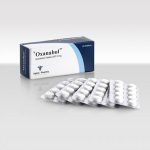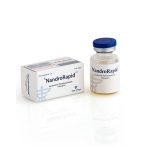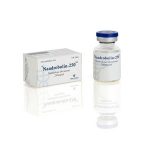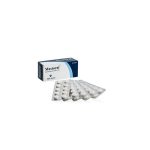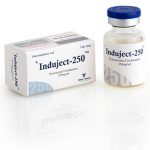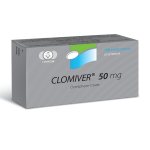Tren side effects
Use in patients with impaired renal function.
Efficiency dapagliflozin is dependent on renal function, and this efficiency is reduced in patients with renal insufficiency of moderate severity, and probably not in patients with impaired severe renal function . Among patients with renal moderate impairment (creatinine clearance <60 mL / min or estimated glomerular filtration rate , have a greater proportion of patients receiving dapagliflozin, was an increase in serum creatinine, phosphorus, parathyroid hormone and arterial hypotension than patients receiving placebo. The drug tren side effects contraindicated in patients with renal insufficiency, moderate or severe (creatinine clearance . The drug Forsiga ™ have not studied in patients with renal failure, severe or end-stage renal failure.
It is recommended to monitor renal function in the following way:
- prior to initiating therapy dapagliflozin and at least once a year thereafter (see sections “Dosage and administration”, “Side effects”, “Pharmacodynamics” and “Pharmacokinetics”.);
- before receiving concomitant medications that may decrease renal function, and periodically thereafter;
- with impaired renal function, close to moderate severity, at least 2-4 times a year. With a decrease in renal function following QC values <60 mL / min or estimated glomerular filtration rate <60 mL / min / 1.73 m 2 , it is necessary to stop taking dapagliflozin.
Use in patients with impaired hepatic function
In clinical trials, limited data obtained with the drug in patients with impaired hepatic function. Exposure dapagliflozin is increased in patients with impaired liver function severe Use in patients with a risk reduction of , the development of arterial hypotension and / or electrolyte imbalance in according to the mechanism of dapagliflozin action enhances diuresis, accompanied by a small decrease in blood pressure diuretic effect may be more pronounced in patients with a very high concentration of glucose in the blood. dapagliflozin is contraindicated in patients receiving “loop” diuretics . Caution must be exercised in patients for whom called dapagliflozin decrease in blood pressure may be a risk, for example, in patients with cardiovascular disease history, in patients with arterial hypertension in history, receiving antihypertensive therapy, or in elderly patients. It is recommended for receiving dapagliflozin careful monitoring of the state of the tren side effects and the concentration of electrolytes (eg, physical examination, blood pressure measurement, laboratory tests, including hematocrit) against comorbid conditions that may lead to a decrease in the bcc. By reducing the recommended temporary discontinuation of dapagliflozin to correct this condition .
Urinary Tract InfectionsIn the analysis of pooled data application dapagliflozin to 24 weeks of urinary tract infections are more marked in the application of dapagliflozin 10 mg, compared with placebo .The development of pyelonephritis infrequently observed, with a similar frequency in the control group. Renal excretion of glucose may be associated with an increased risk of urinary tract infections, so the treatment of pyelonephritis or urosepsis should consider temporary discontinuation dapagliflozin . Elderly patients Elderly patients are more likely to impaired renal function and / or use of antihypertensive drugs that may affect renal function, such as angiotensin-converting enzyme inhibitors and angiotensin II receptor . For elderly patients apply the same recommendations with impaired renal function, as well as for all patient populations , in the group > 65 years of age have a greater proportion of patients treated with dapagliflozin, developed adverse reactions associated with impaired renal function or renal failure as compared to placebo. The tren side effects most common adverse reactions associated with impaired renal function, was to increase the concentration of creatinine in the blood serum, the majority of cases were transient and reversible (see. Section “Side effects”). In elderly patients, the risk reduction of BCC can be higher and more likely diuretics . Among patients aged > 65 years have a greater share of patients receiving dapagliflozin, marked adverse reactions associated with a decrease in the bcc (see. Section “Side effects”). The experience of the drug in patients aged 75 years and older is limited. Contraindicated begin therapy dapagliflozin in this population (see. Sections “Dosage and Administration” and “Pharmacokinetics”).
Congestive heart failure Experience with the drug in patients with chronic heart failure functional class classification is limited, and in clinical trials dapagliflozin was not used in patients with chronic heart failure III-IV functional class. increased hematocrit values When using dapagliflozin was an increase in hematocrit (see. section “Side effects”), and therefore caution should be exercised in patients with elevated hematocrit values. Estimates of urine analysis results Due to the mechanism of action of the drug results of urine tests for glucose in patients taking the drug Forsiga ™ , will be positive.




